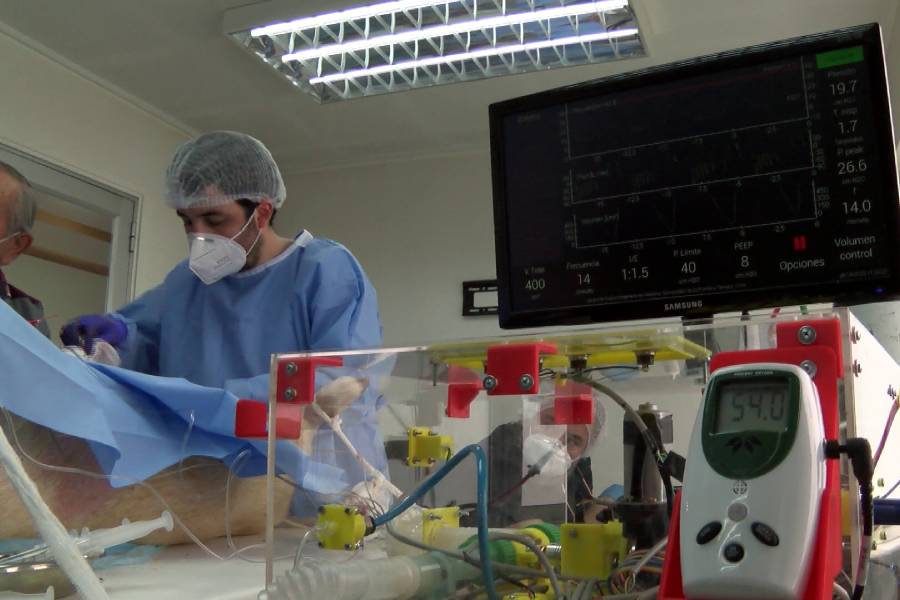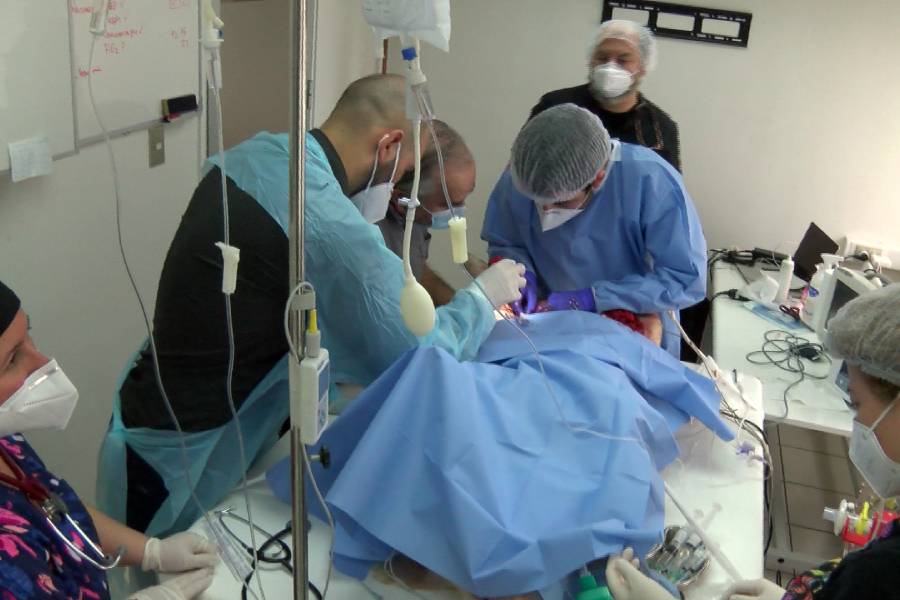|
Since late March, a multidisciplinary team of physicians and engineers of UFRO has been working on the development of a mechanical ventilator, as a support in case of a possible lack of this kind of medical devices, due to the pandemic caused by COVID-19. |
This prototype of a mechanical ventilator has been developed by a team of experts from the Composite Materials Laboratory, which is directed by Dr. Renato Hunter, and the Center of Medical Physics and Engineering (CFIM), directed by Dr. Rodolfo Figueroa, of the university Universidad de La Frontera (UFRO), where also the experimental protocol was carried out, which is a crucial stage in the development process. The aim of this initiative is to support health professionals during this worldwide health crisis caused by COVID-19. The activity was chaired by Dr. Renato Hunter, the Vice-Rector for Academic Affairs, who pointed out that the development of this high-performance mechanical ventilator, which is very similar to the ones being used today in intensive care units, is a major milestone, since it will allow those establishments that do not have this kind of device, yet, to purchase it, because of its low cost. “There is no doubt about the impact of this achievement on the regional community. It will allow us to provide the health care service with this kind of equipment and if we manage to successfully complete the different procedures for the approbation of this mechanical ventilator, we will be able to provide it for the establishments that require it and to contribute to the current needs. This would allow us to avoid the lack of resources in our health care system, as we can experience it in our different care services at the regional level, and, therefore, help the community by contributing to the technological development of these devices with a national impact,” Dr. Hunter pointed out. During these months, the team, composed of doctors and engineers of UFRO, focused on developing a functional and efficient low-cost equipment with components that are available on the national market, and that complies with the international (WHO) and national (SOCHIMI) standards and requirements. One of the collaborators and advisors in this process was Dr. Waldo Merino, an academic of the UFRO Surgery, Traumatology and Anesthesiology Department, who made it possible to correctly pass the different validation tests. SUCCESSFUL PROTOCOL APPLICATION The application of the protocol was carried out and transmitted via streaming from the laboratories of the Universidad de La Frontera, a process that was declared successful in terms of the time and results expected by the team. The mechanical ventilator prototype uses a pneumatic solenoid valve that allows the medical gas (a mixture of medical air and O2) to flow to the patient, in addition to flow sensors in order to control the volume administered. The prototype can operate in four different ventilation modes, detecting the patient's inspiratory efforts in order to provide only the required volume. At the same time, this mechanical ventilator has a sophisticated electronic system and an alarm system that is connected to the monitor and provides the required information for a successful ventilation. It is worth mentioning that this achievement could be reached in collaboration with other local establishments. In this context, Mr. Waldo Merino commented that “we have great support for this project, in terms of infrastructure, human and physical resources, supplies and technological support, provided by the clinic ‘Clínica Alemana’ in Temuco. Another important support were our peers of the program in Veterinary Medicine from the university ‘Universidad Católica’ in Temuco (UCT), who have been able to join this project thanks to the constant support of Dr. Carlos Lüders, the Vice-Rector for Research at UCT. They were a great support, since without them we would not have been able to successfully complete the required tests in animal models”. Over the next few months, the team will continue with the improvement of the device’s functions, in order to reach perfection and to get the official certification by CERTIMED (a process carried out by the University of Valparaiso, Chile), which is required for all mechanical ventilators manufactured in Chile during this health crisis.
Written by: Vice-Rectorate for Academic Affairs, UFRO
|






